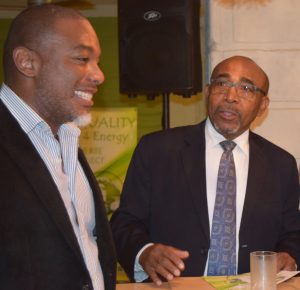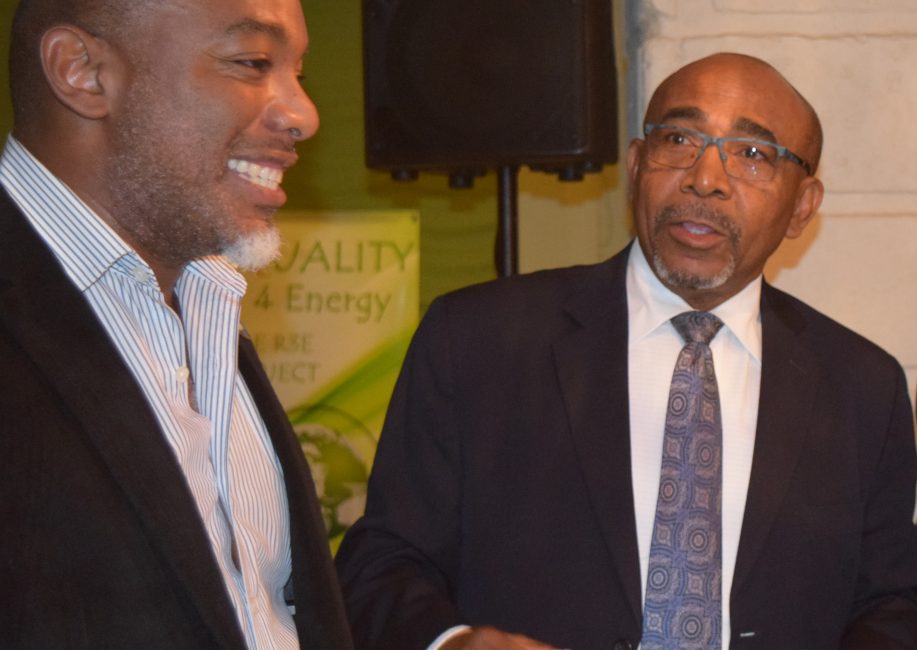As the Caribbean Community (CARICOM) moves to become more energy efficient, steps are being taken to phase out the use of incandescent bulbs. On the basis of a mandate from the CARICOM Energy Ministers, plans for the phase‑out programme are now being developed by the CARICOM Secretariat and the CARICOM Regional Organisation for Standards and Quality (CROSQ) and are expected to be completed in September 2018.
The programme, according to Representatives from the CARICOM Secretariat, will include a roadmap to reduce the import and sale of incandescent light bulbs within the region, and will guide and support countries in the establishment of regulations and actions for the phasing out exercise. If all goes according to the plan, incandescent bulbs will gradually be phased-out as energy efficiency standards for lighting are phased-in. The phase-out schedule could begin as early as January 2019 with the 100 watt incandescent bulbs, with further restrictions on smaller lamp sizes entering into force in incremental stages over a number of years.
The decision to develop the phase-out programme was taken at the recently-concluded Meeting of CARICOM Energy Ministers. The Meeting was held at the CARICOM Secretariat in Georgetown, Guyana on 19 April 2018, and was chaired by Senator the Hon. Darcy Boyce, Minister of State in the Office of the Prime Minister of Barbados with responsibility for Energy. The Ministers took the decision as part of the menu of quality measures that are being undertaken to steer the Community towards energy efficiency and sector regulation.
The incandescent light bulb has existed for 130 years and are inefficient because they waste most of their energy. They are very cheap to manufacture and purchase but only 5% of the input power is converted into visible light, with the remainder converted into waste heat. Hence, they are expensive to operate and lead to high electricity bills for households and businesses that use them. The natural successors to the incandescent bulb are compact fluorescent lamps (CFLs) and Light Emitting Diodes (LEDs). These use 60-90% less energy than incandescent lighting and offer a much longer lifespan.

In 2015, the CARICOM Ministers had approved energy perform standards for CFLs and LEDs. These standards protect consumers from “underperforming products” while simultaneously protecting importers of highly efficient products from competitors saturating the market with “cheaper”, low‑performance products. Effort is being made for the standards for CFLs and LEDs to be adopted at national levels before year‑end as an assurance of quality in the efficient lighting alternatives is a precursor to the removal of inefficient incandescent bulbs from CARICOM markets.
Cuba was the first country in the world to successfully complete the phase-out of incandescent bulbs. In 2007, the Caribbean country banned the import and sale of incandescent bulbs and implemented a programme for their direct substitution with CFLs in households. According to reports, about 116 million incandescent bulbs were replaced by CFLs in every household in Cuba, resulting in peak demand savings of about 4,000 MW and 8 million tons of carbon emissions.
Regional Energy Efficiency Building Code
Among the other steps that the region has taken on the road to energy efficiency is the development of an Energy Efficiency Code for buildings within the CARICOM. Energy Ministers, at the April 19 Meeting in Guyana, also approved the 2018 International Energy Conservation Code, with the accompanying Caribbean Application Document, as the Regional Energy Efficient Building Code (REEBC).
The establishment of the REEBC is a very important step in creating a clear and generally-accepted framework for maximising the efficiency of the “total” energy services in buildings. The approval paves the way for the systematic implementation of the principles and practices related to, among other things, energy efficient lamps and lighting. The phase out of incandescent bulbs is consistent with the requirements of the recently‑approved Energy Efficiency Code for CARICOM buildings.
Within CARICOM, successful implementation of the REEBC could eliminate 15,000 barrels of imported oil (and save around US$ 1 million in foreign exchange) every day.
Contacts
Michelle Nurse: michelle.nurse@caricom.org
Devon Gardner: devon.gardner@caricom.org
(News Release by the CARICOM Energy Unit)




